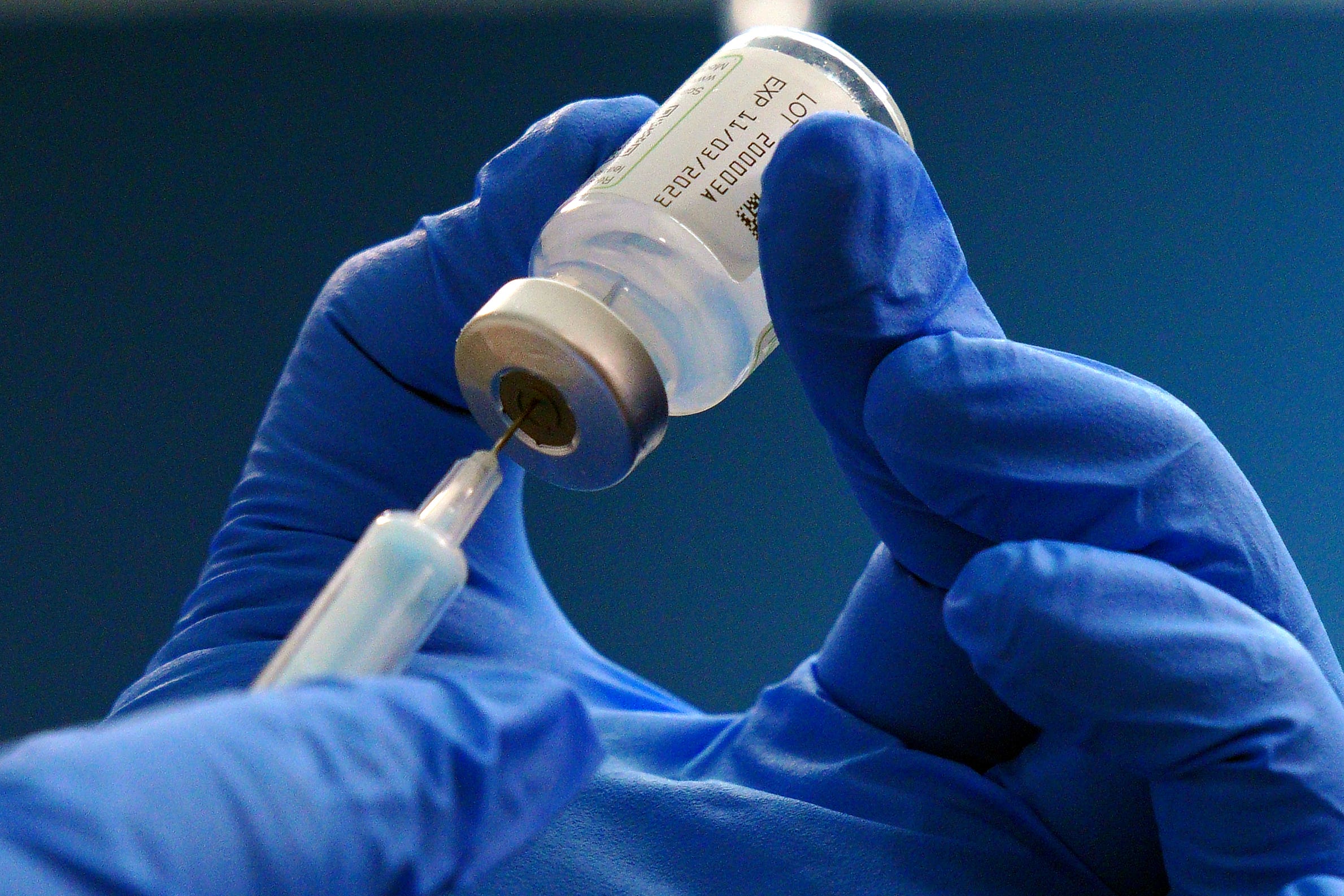People urged to get flu jabs to reduce NHS pressure this winter
The vaccine programme for flu and Covid-19 started earlier this year.

People are being urged to get their flu jabs to help relieve pressure on the NHS ahead of winter.
Health officials said flu placed a greater strain on hospitals than Covid-19 last year.
According to the UK Health Security Agency (UKHSA), flu led to more than 14,000 excess deaths in the winter of 2022/23 and more than 10,000 children were admitted hospital with the illness.
However, modelling carried out by the organisation revealed the flu vaccine programme prevented about 25,000 hospital admissions last winter, with a little under 50,000 recorded for the season.
Vaccination is our strongest form of defence so if you are eligible, please come forward and get your jabs as soon as possible
The UKHSA is urging vulnerable groups, such as pregnant women, young children and people with chronic conditions to come forward for their jabs.
Deputy chief medical officer Dr Thomas Waite said: “Flu and Covid circulated last winter causing significant peaks and resulting in thousands of hospitalisations and deaths. It is important that we are protected against both.
“Vaccination is our strongest form of defence so if you are eligible, please come forward and get your jabs as soon as possible.”
In August, it was announced that the flu and Covid-19 vaccine programme would be brought forward following the discovery of the BA.2.86 variant of Covid-19.
People started getting their jabs from September 11 rather than in October as previously planned.
At the time, the UKHSA said the move would lead to greater protection against illness, particularly for the most vulnerable, as well as reducing the impact on the NHS.
Vaccines minister Maria Caulfield said: “After beginning the NHS winter vaccination campaign early, this winter rollout will continue our tireless efforts to equip our communities with immunity against Covid and flu and protect the most vulnerable among us.
“Flu placed a greater burden on hospitals than Covid last year, so it’s essential that we all take part in reducing pressure on the health system by booking our Covid and flu jabs as soon as possible to keep ourselves and our loved ones safe from infection.”
Ms Caulfield added that the NHS has already administered flu jabs to 2.8 million people since September, along with more than one million autumn Covid jabs.
“Please do come forward and get your jabs to protect yourself and your loved ones,” she added.
The UKHSA said data from this year’s winter in the southern hemisphere shows flu vaccines are “well-matched” against the current strains circulating.
The Australian Government also officially recorded its season as “low” clinical severity.
People eligible for the jabs can book a slot via the NHS website, by downloading the NHS app, or by calling 119.
Parents of children aged two and three on August 31 should book a nasal spray flu vaccine for them via their GP.
Bookmark popover
Removed from bookmarks